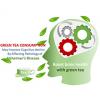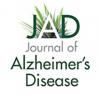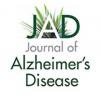14 October 2020
Older People with Early, Asymptomatic Alzheimer’s at Risk of Falls
Older people without cognitive problems who experience a fall may have undetected neurodegeneration in their brains that puts them at high risk of developing Alzheimer’s dementia, according to a study from Washington University School of Medicine in St. Louis.
1 October 2020
Poor Cognitive Performance Predicts Impairment in Activities of Daily Living Years Later
Subtle differences in cognition may help identify individuals at risk for becoming dependent years later upon others to complete daily activities, such as managing medications or finances and other essential activities. Writing in the September 29, 2020 online issue of the Journal of Alzheimer’s Disease, researchers at University of California San Diego School of Medicine, with colleagues elsewhere, linked poorer cognitive performance in a single testing with subsequent greater risk for impaired daily life activities nearly a decade later.
21 September 2020
Awareness of COVID-19 in Severe Dementia Patients
The ongoing COVID-19 pandemic has substantially affected patients with dementia and their caregivers. Owing to the restrictive measures taken worldwide to block the spread of COVID-19 outbreaks, patients with dementia and their caregivers have not been able to receive the usual support and care. Based on the hypothesis that patients with severe dementia tend to be unaware of the COVID-19 outbreak and hence may be less depressed, we compared the rate of recognition of the COVID-19 outbreak and resultant depressive tendencies between patients with mild dementia and those with severe dementia.
17 September 2020
The CABLE Study: Green Tea Consumption May Help Fend Off Cognitive Decline by Affecting Alzheimer’s Disease Tau Pathology
A team from the Qingdao University and Fudan University of China recruits more than 700 older adults aged 40 years or older, investigates their drinking tea habits, and assesses their cognitive function and especially alterations of aging brain pathology, i.e., Alzheimer’s disease.
3 September 2020
Alzheimer’s Burden Greater in Rural Appalachia, Study Finds
Alzheimer’s disease is more common in rural Appalachian Ohio communities than in other rural areas in the state – raising concerns about access to early, specialized care in a region where many residents face struggles getting the medical care they need, a new study has found. Researchers from The Ohio State University examined 11 years of federal Medicare data, ending in 2017, to compare the prevalence of Alzheimer’s disease and related disorders in Appalachian Ohio with other parts of the state.
1 September 2020
Estrogen Replacement May Protect Against Alzheimer’s Disease in Women
Alzheimer’s disease (AD) is the most common neurodegenerative disease and the leading cause of dementia. It affects more women than men. A new study published in the Journal of Alzheimer’s Disease indicates that factors such as age, reproductive stage, hormone levels, and the interplay with other risk factors should be considered in women and proposes a role for early menopausal estrogen replacement to protect against the development of AD.
18 August 2020
New Links Found Between Diabetes Blood Markers and Alzheimer’s Disease Pathology
A new study published in JAD provides insight into the association of blood markers of diabetes with brain beta-amyloid accumulation among older people at risk of dementia. The results suggest a link between Alzheimer’s pathology, lower levels of insulin and lower insulin resistance.
5 August 2020
Body Weight Has Surprising, Alarming Impact on Brain Function
As a person’s weight goes up, all regions of the brain go down in activity and blood flow, according to a new brain imaging study in JAD. One of the largest studies linking obesity with brain dysfunction, scientists analyzed over 35,000 functional neuroimaging scans using single-photon emission computerized tomography from more than 17,000 individuals to measure blood flow and brain activity.
4 August 2020
2020 JAD Editorial Board Update
To keep our JAD editors, authors, and readers informed of JAD's progress and development, the journal hereby shares the 2020 editorial update.
31 July 2020
Memory Loss Reversed or Abated in those with Cognitive Decline
Affirmativ Health sought to determine whether a comprehensive and personalized program, designed to mitigate risk factors of Alzheimer’s disease could improve cognitive and metabolic function in individuals experiencing cognitive decline. Findings published in the Journal of Alzheimer’s Disease Reports provided evidence that this approach can improve risk factor scores and stabilize cognitive function.
















